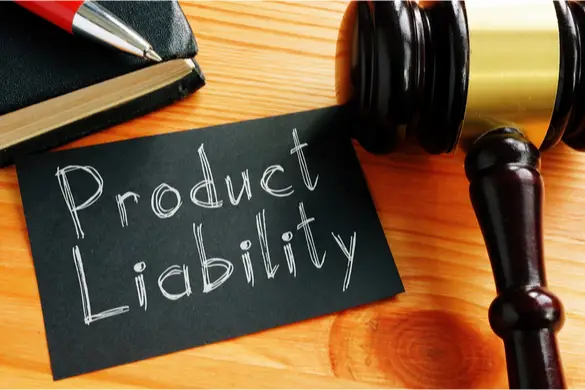
There are many product liability theories for recovery or defense. Product liability theories include errors, defects or issues with a company’s goods. Under these theories, companies can be held liable or defended against. These theories directly apply to product based manufacturers, designers and sellers. As a business owner, you should learn the different theories to protect against legal action and apply for product insurance. In this article, we’ll discuss different product liability theories for recovery or defense.
Negligence
Negligence is a central product liability theory for company defense. Under this theory, the plaintiff will have to prove five elements. Most importantly, the manufacturer must have owed a duty to the plaintiff and breached that duty. That breach of duty must be considered the proximate cause of the plaintiff’s injury. The plaintiff must have suffered confirmed damages due to negligence. As such, the law requires that a manufacturer implements a standard level of care for those who make similar products. Companies should be aware of negligence as a product liability theory to best defend themselves.
Breach Of Express Warranty
Next, product companies should be aware of the breach of express warranty theory. An express warranty is a written or stated commitment. If a company breaches an express warranty, they may have a product liability issue. Specifically, an express warranty constitutes labels and packaging on the product. The warranty may include advertisements, marketing messages and promotions too. For example, companies must honor the features and claims for their product. If a promised feature is not present in the received product, the company may have breached this theory. Naturally, you should carefully review product claims and features in all company materials. By delivering on product features, you can avoid product liability claims for breach of express warranty.
Misleading Information And False Advertising
Business owners should also defend against misleading information and false advertising. False advertising occurs when the manufacturer of a product conveys incorrect or misleading information. Companies who disclose false information that harms a customer can be held liable. However, the false information has to be directly related to the product. A company must have made a false statement intending to mislead the plaintiff to be held liable for false advertisement. In some jurisdictions, strict liability is enforced when a manufacturer makes a public statement about the safety of a product that is not true. The product liability theory of false advertisement is critical for companies to defend against.
Contract Law Theory
Contract law is another theory companies can recover from. Contract law is concerned with regulating agreements made between parties. Of course, these contracts should be reviewed by an attorney. In addition, contract law defines the rights of product manufacturers and buyers. Importantly, contract law is dependent on state law. Currently, all states except Louisiana have adopted the Uniform Commercial Code (UCC) into their state laws. This provision includes product liability rules for implied and express warranties in the sale of goods. Contract law also addresses statutes of limitation/repose and product liability actions within each state. Companies should be aware of the variability of contract law to best recover from product liability.
Plaintiff Negligence
Finally, plaintiff negligence is a product liability theory that companies can use as a defense. This theory is particularly concerned with products that have risk. A customer who knowingly assumes the risk of a clear danger cannot hold the manufacturer liable. For example, if a person intentionally electrocutes themselves by putting a fork into an outlet, the manufacturer cannot be held accountable. Furthermore, a product that has an obvious risk of injury is exempt from liability. For instance, alcohol manufacturers are not liable for injuries customers suffer while drunk. This theory helps riskier product companies avoid constant lawsuits. Plaintiff negligence can be a useful way for companies to recover from product liability claims.
Companies should understand product liability theories so they know how to best defend themselves. Negligence, breach of express warranty, and false advertising are all forms of product liability companies can protect themselves from. Contract law, while state specific, is also important to understand for company defense. Plaintiff negligence is a helpful defense companies can use when they are manufacturing products that can cause injury. Consider these points when ensuring your own company’s safety from product liability. Of course, apply for business casualty insurance to protect your company from product liability. These different forms of liability encompass the main theories of product liability companies can recover from.
 Business First Family Business, Accounting, Finance, Investing, Marketing And Management
Business First Family Business, Accounting, Finance, Investing, Marketing And Management